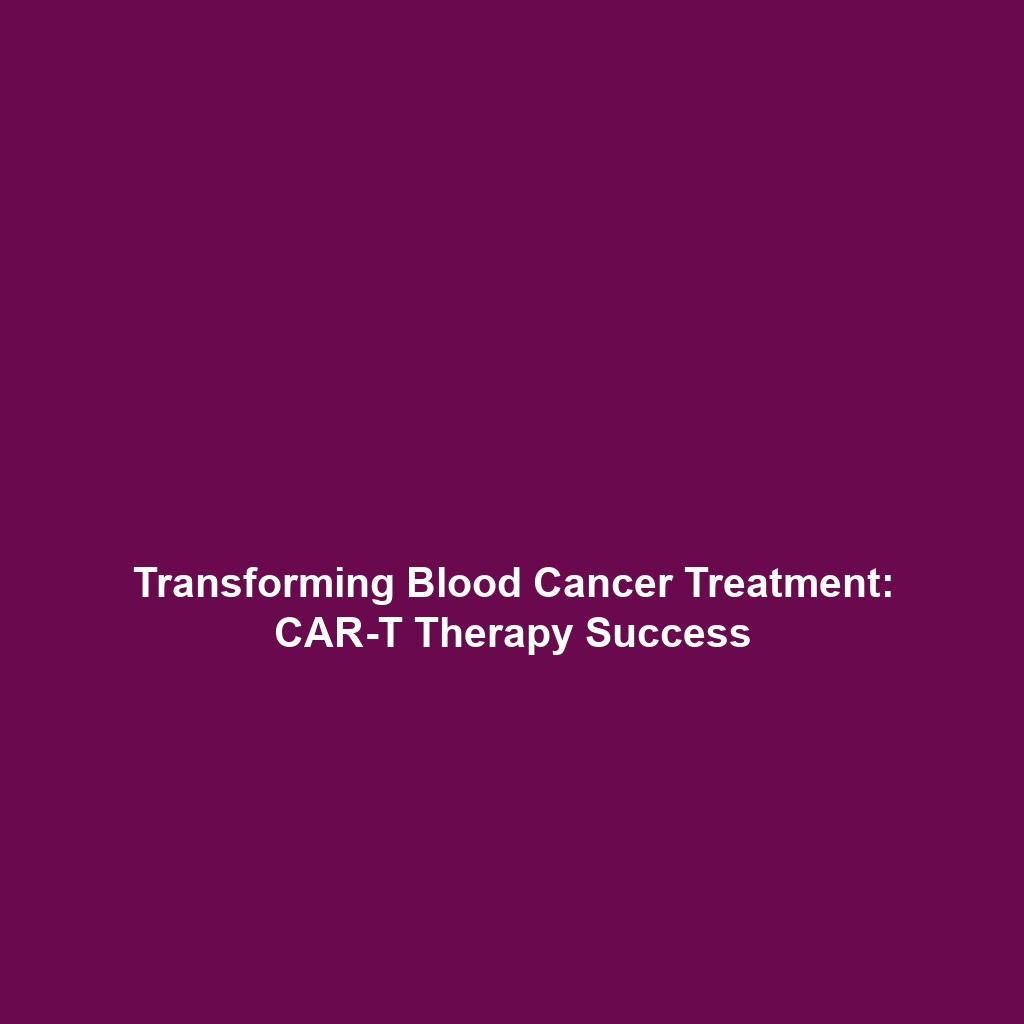Cancer Vaccines: Boosting the Immune System’s Response to Cancer-Specific Antigens
Introduction
Cancer vaccines represent an innovative advancement in immunotherapy, aiming to enhance the body’s immune response against cancer-specific antigens. By educating the immune system to recognize and attack cancerous cells, they hold the potential to significantly improve treatment outcomes in various cancers. This article delves into the principles, applications, current challenges, and future innovations surrounding cancer vaccines, underscoring their growing importance in the cancer treatment paradigm.
Key Concepts
The fundamental principle of cancer vaccines revolves around the activation of the immune system to identify and eliminate cancer cells. Several key concepts are vital for understanding this approach:
- Antigen Presentation: Cancer cells often express unique proteins (antigens) that can be targeted by the immune system.
- Types of Cancer Vaccines: Vaccines can be preventive (preventing cancer occurrence) or therapeutic (treating existing cancer).
- Immune Response Activation: Vaccines stimulate T cells and B cells to recognize and attack cancer cells, leading to enhanced immunity.
Thus, cancer vaccines play a crucial role in the field of immunotherapy, offering a tailored approach to treating various malignancies.
Applications and Real-World Uses
In recent years, the applications of cancer vaccines have expanded significantly, illustrating their value in clinical settings:
- Provenge (Sipuleucel-T): This vaccine is specifically designed for prostate cancer treatment.
- HPV Vaccines: Such as Gardasil and Cervarix, which prevent cervical cancer by targeting the human papillomavirus.
- Personalized Vaccines: Under research, these utilize a patient’s specific tumor antigens to prompt a more effective immune response.
These examples showcase how cancer vaccines are utilized in the broader category of immunotherapy to combat different types of cancer.
Current Challenges
Despite their potential, studying and implementing cancer vaccines presents several challenges:
- Immune Evasion: Cancer cells can develop mechanisms to evade immune detection.
- Diverse Antigens: Tumors exhibit heterogeneity, complicating the targeting of specific antigens.
- Regulatory Hurdles: The approval process for new vaccines can be lengthy and complex.
- Funding and Resources: Sufficient funding for clinical trials and research is essential but often limited.
Addressing these challenges is crucial for the advancement and wider adoption of cancer vaccines in immunotherapy.
Future Research and Innovations
Looking ahead, the landscape of cancer vaccines is poised for transformative changes:
- Next-Generation Sequencing: This technology may enable the development of personalized vaccines based on individual tumor profiles.
- Combination Therapies: Integrating vaccines with other treatments, such as checkpoint inhibitors, could enhance efficacy.
- Microbiome Research: Understanding the gut microbiome’s role in immune response may inform vaccine effectiveness.
These innovations have the potential to redefine immunotherapy and expand treatment options for cancer patients.
Conclusion
Cancer vaccines have emerged as a vital component of immunotherapy, offering hope for improved patient outcomes through the targeted enhancement of the immune system’s response to cancer-specific antigens. As research progresses and challenges are addressed, cancer vaccines may soon become standard practice in oncological care. For more information on this topic, visit our section on immunotherapy advancements or explore our resources on current cancer research.




